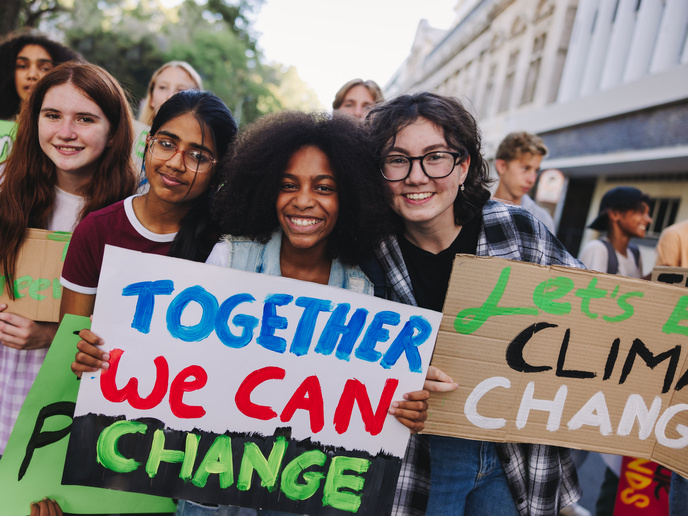Do younger people care more about the climate?
Thanks in large part to Swedish environmental activist Greta Thunberg, it’s a general assumption that younger generations are more in touch with climate change impacts than older ones. If you were born any time after the 1980s, chances are the threats of a warming planet are taking a heavier emotional toll on you, according to new research.
Climate-related anxiety
To investigate generational differences in attitudes towards climate change, a research team from the United Kingdom’s Cardiff University and University of Bath gathered data across the country from surveys conducted between 2020 and 2022. The surveys involved 10 questions to evaluate respondents’ beliefs, risk perceptions and experienced emotions concerning climate change. Findings published in the journal ‘Communications Earth & Environment’(opens in new window) showed that Gen Zs and millennials have higher levels of fear, guilt and outrage about the effects of climate change compared with Gen Xers, baby boomers and post-war groups. “It is widely believed that younger generations are more engaged with climate change than older generations, but that has never been studied systematically,” lead author Prof. Wouter Poortinga of Cardiff University commented in a news item(opens in new window). “In our study, we found an overall pattern of higher levels of climate-related beliefs, risks perceptions and emotions among younger generation groups.”
A generation gap, but …
The researchers found no generational differences with respect to believing in the causes and impacts of climate change. The various emotional responses to climate change could potentially be a factor in why younger generations exhibit more activism and engagement. “However, the gap between generations about climate change is mainly in their emotional responses to climate change, rather than in beliefs about climate change,” Prof. Poortinga explained. “For example, there are no generational differences in beliefs in the causes and impacts of climate change, although older age groups are more likely to think that we are already feeling the effects of climate change.” On the one hand, the study suggested that negative emotions can affect young peoples’ well-being. On the other, they can serve as motivation for taking action. “While there is widespread awareness of climate change across all generations, younger generations feel much more threatened by it and have stronger emotional reactions,” added Prof. Poortinga. “That is not completely surprising, given that younger generations will feel the brunt of the impacts of climate change, more so than older generations.” “We however have to be careful not [to] put the onus on younger generations to solve climate change. Older generations have a responsibility to take action now to mitigate climate change for future generations,” concluded Prof. Poortinga.



